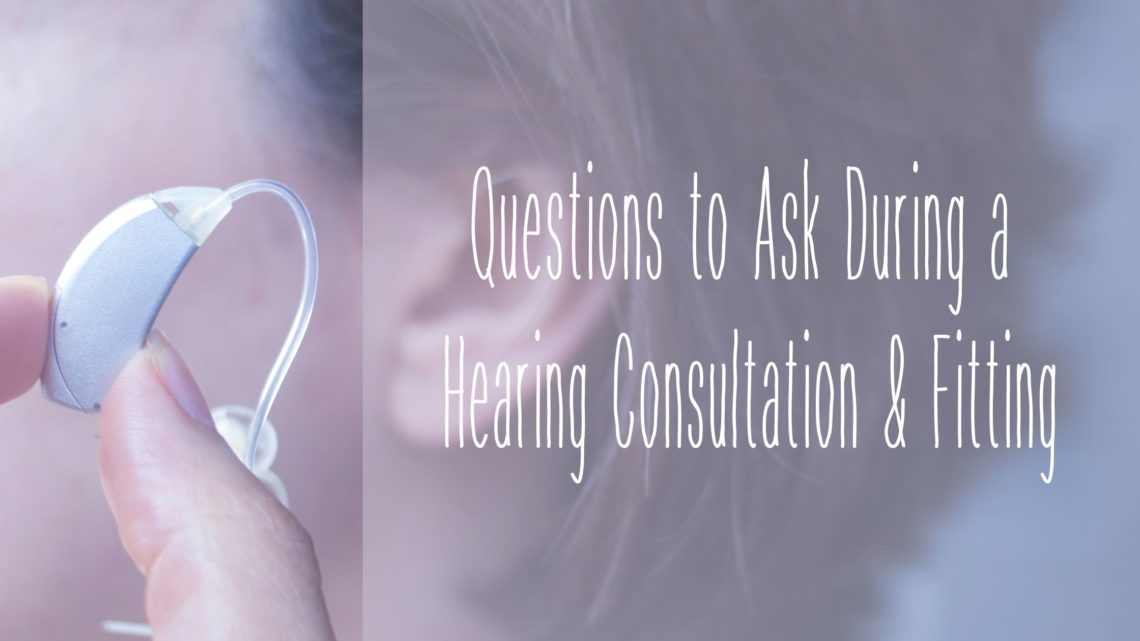Congratulations on scheduling an appointment for a hearing consultation and fitting! This is a major step in improving your hearing health and overall quality of life. Hearing consultants provide the space and opportunity to identify your hearing needs and establish the most effective treatment option to meet those needs. You may be feeling a little anxious but by knowing what you can expect and drafting questions to discuss with your hearing healthcare provider, you can feel more comfortable and prepared!
What to Expect During a Hearing Consultation
Hearing consultations and fittings are all about assessing your hearing, diagnosing impairment, and discussing treatment. This process is noninvasive and painless, involving the following steps:
- Medical Intake: like most, if not all, medical appointments; your hearing consultation will start with completing paperwork and having an initial conversation with us. You will likely discuss some of your medication history, hearing loss symptoms, lifestyle factors, what your hearing concerns are etc.
- Hearing Exam: the hearing assessment begins with an inspection of your outer ear and ear canal. We do this with an otoscope which is a small instrument that can be easily inserted in the ear. We will check for any injuries, damage, or earwax (which will be removed if needed). After this inspection, the hearing test will take place. This consists of wearing headphones in a booth or quiet room, you will be guided through speech and sounds played at different volumes and frequencies. You will respond to what you can hear by pressing a button.
- Treatment: your results from the hearing test are captured on what’s called an audiogram which is a chart that illustrates what you can hear, the sounds you have more difficulty processing etc. We will thoroughly discuss these results with you and also recommend the hearing aids that would be most effective for your specific hearing loss.
- Hearing Aid Fitting: once you decide on the type of hearing aid, you will get a fitting. This involves us calibrating the device, establishing the preferred settings, and teaching you how to use and maintain it!
This appointment is a great opportunity to really ask the questions and share any concerns you have about your hearing health. To maximize your appointment, a useful thing to do is to think through and draft questions that you want to ask your hearing healthcare provider.
Suggested Questions to Ask
You likely have questions and things you have been wondering about your hearing health. Some additional questions you can ask include:
- What type of hearing loss do I have?
There are different types of hearing loss – sensorineural, conductive, and mixed. The specific type of hearing loss you have informs your treatment options. Be sure to ask specific questions about your diagnosis which can include the severity of the impairment (mild to severe), the types of sound you have difficulty hearing, if the impairment is the exact same in both ears, how it differs etc.
- What can I expect from my hearing aids?
Hearing aids are smaller and savvier than ever before. These electronic devices are designed to absorb, amplify, and process sound which provides amply hearing support. Similar to most electronic devices today, they’ve experienced significant innovation. There is such a wide range of hearing aid types, features, and technologies that is important to know about. Be sure to ask about hearing aid features like Bluetooth technology, noise cancellation, voice recognition etc. It is also important to discuss relevant aspects of your lifestyle that impacts the type of features you may benefit from – hobbies, profession, exercise etc. Lastly, maintaining your hearing aids is critical so that they continue to properly and effectively function. Be sure to ask about maintenance procedures and best ways to care for your device.
- Is there insurance coverage and/or warranty?
Insurance often depends on the hearing aid brand so it is important to ask. It will be useful to contact your insurance provider beforehand to see if they offer any type of coverage for hearing aids. Also, be sure to discuss any warranty plans or trial periods that come with the device. This will allow you to test the device!

